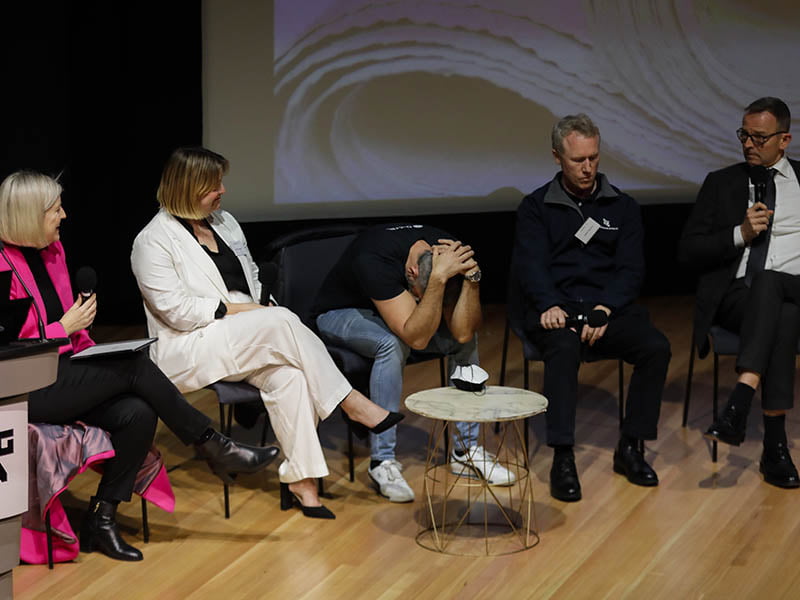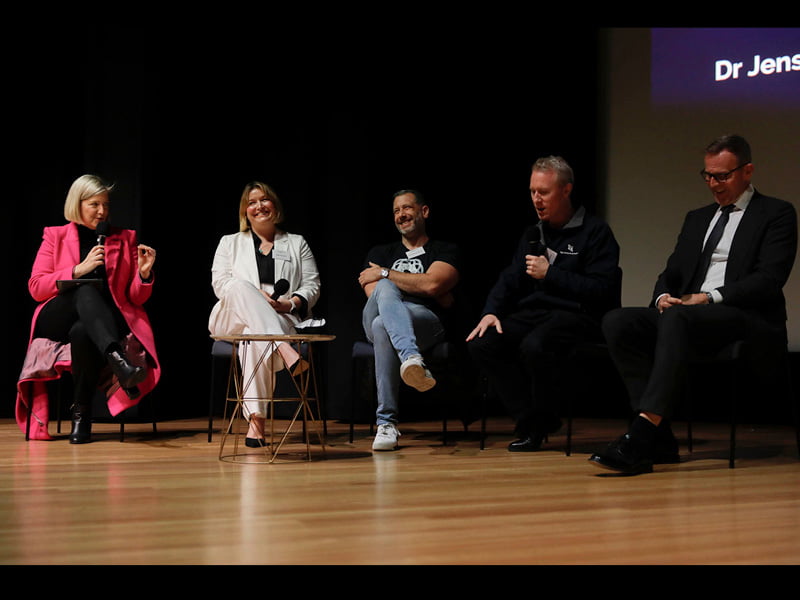The significance of funding basic research was contested between panelists in an at times fiery discussion at The Innovation Papers [Live] event on Thursday that focused on the best way to support deep tech research while enabling its translation to commercial manufacturing.
The panel speakers were Q-CTRL founder and chief executive Professor Michael Biercuk, Advanced Manufacturing Growth Centre managing director Dr Jens Goennemann, Exciton Science chief operating officer Kate McGeoch, and Gilmour Space co-founder and chief executive Adam Gilmour.
When moderator Sally-Ann Williams, the chief executive officer of incubator Cicada Innovations asked the panelists to highlight the key point they wanted attendees to takeaway, Professor Biercuk called for greater support for pure basic research.

“My key takeaway message is that we should chase the opportunity we have and we should support the diversity of players who are contributing to [innovation]. We shouldn’t just focus on one bright shiny thing, because there’s this whole other sector that often gets ignore in the innovation dialogue, which is the university basic research sector,” Professor Biercuk said.
“What I want is the reset, that we see the different parts of the community, from the small startups the big scale ups, our university partners and friends, including our university friends who just want to do basic research and don’t want to talk to [industry], that’s totally fine. We need that. And I want everyone to see that the opportunity is framed around the diversity of that community.”
On the other hand, Dr Goennemann argued that Australia focuses too much on early research and called for more applied research.
“It’s all about global competitiveness and commercialisation. Research excellence behind university doors doesn’t serve us in any way. To utilise global competitive knowledge into commercialisation realisation is key and our ecosystem is not focused on that, we are focusing too much on early research,” said Mr Goennemann.
In response to Professor Biercuk’s statement that pure basic research made up 17 years of his career, Dr Goenemann commended him on commerciliasing it.
“That was your starting point for your journey, and now is it where you are? But this is fantastic. Without your commercialisation, you will have another 17 years and ask yourself ‘what if I’d done more?’ and you would have realised it. And you used your capital instruments to do that, well done,” Dr Goenemann said.
Ms McGeoch noted that commercialisation could not be adequately supported by asking people at universities to move from research to the other side of the value chain. Instead, she called for greater collaboration between entrepreneurs and researchers.

“We need to celebrate the diversity in our research and innovation scope, and we need to understand that it’s not a linear model. It’s everybody working together…There’s big pictures that all the scientists I work with everyday are talking about, such as ‘What problem they want to solve? What do they want to be known for?’, but that’s not what their expertise is,” Ms McGeoch said.
“They need to be partnering with people at the other end of the scale, with [Adam Gilmour] and with [Michael Biercuk] and talking to them and getting on board really early on…I also think that will foster this development.
“Universities are extremely risk averse, and that’s because they love what they do…but that doesn’t mean you can’t talk to people that are going outside the box. I think that’s really important, we need to be making sure we’re helping [fill those industry gaps].”
Mr Gilmour reiterated points he made in the Innovation Papers and discussed the importance of having Australian prime contractors.
“I think ‘prime’ gives the government the ability to dictate a lot more in terms of the way that technology is moving,” Mr Gilmour said.
“But in [Gilmour Space’s] example, we have over 300 Australian companies that are our technology partners…We worked with these companies to co-develop technology with us and so when we go to space, 300 Australian space companies will go into space on our vehicle, and 300 Australian companies can go into the global market and say I’m space qualified.”
Left with the final words on the panel, Mr Gilmour called on the Australian public and government to “believe that Australia can do impossible things, and I want them to back the champions because we don’t do that”.
Do you know more? Contact James Riley via Email.

